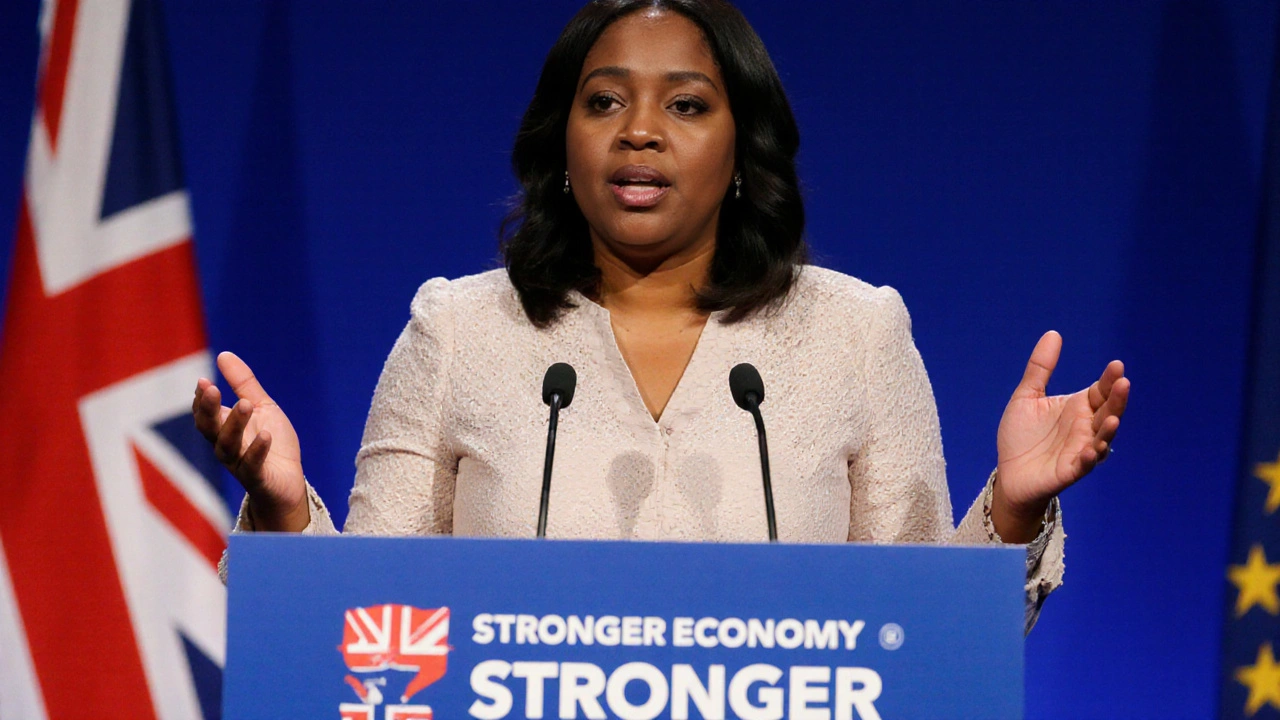Kemi Badenoch and the World of Liverpool Sports
When working with Kemi Badenoch, the UK Minister for Business and Trade and a prominent voice on sport‑related legislation, you’re looking at someone who blends politics with everyday community issues. Also known as MP Kemi Badenoch, she pushes for stronger governance, transparency and investment in the sectors that affect us all. Her policy work often crosses into the arena of local sport, where funding decisions can change the game for clubs and fans alike.
Why politics matters for local sport
In the UK, the British government, the central authority that crafts legislation and allocates public money sets the framework for every sports initiative. When the government decides to boost sports funding, financial support directed at facilities, grassroots programs and elite pathways, clubs in Liverpool feel the ripple effect. More money means better pitches, more coaching courses, and stronger youth leagues – all of which feed the city’s rich sporting culture.
For fans and athletes alike, the Liverpool sports community, the network of clubs, schools, volunteers and supporters across the city is the heartbeat that keeps the game alive. When policy shifts, whether it’s a new tax incentive for club owners or a grant for women's football, that community responds instantly. The link between policymakers like Kemi Badenoch and local players is a classic example of a semantic triple: Kemi Badenoch influences sports funding; sports funding shapes the Liverpool sports community; the Liverpool sports community benefits from government policy.
Take the recent push for better facilities in Merseyside. The government announced a £30 million boost for multi‑use stadiums, a move championed by ministers who see sport as a catalyst for health and economic growth. That funding directly fuels projects such as the new training hub at Anfield and upgraded community gyms in the city’s north districts. Without that political backing, many of these plans would stall at the planning stage.
Another key connection is the emphasis on youth development. The Ministry of Sport, guided by politicians like Badenoch, has rolled out a national talent‑identification scheme. The scheme gives local clubs access to scouting tools, coaching certificates, and partnership opportunities with schools. When a teenager from a Liverpool suburb gets a scholarship because of this program, you can trace the chain back to a policy decision made in Westminster.
Critics sometimes argue that political involvement can over‑regulate the sport, limiting club autonomy. Yet the reality is more nuanced. Smart legislation can protect clubs from financial mismanagement, ensure fair play, and promote inclusivity. For instance, recent mandates on gender equity in club leadership have opened doors for more women in coaching roles across the city.
Sports fans also benefit from clearer broadcasting rules that stem from government negotiations. When the UK secures better TV deals for lower‑league football, local matches get wider exposure, attracting sponsors and new supporters. That exposure creates a virtuous cycle: more money, better facilities, higher participation.
In short, the relationship between policy makers, those who design and enforce rules that affect sport and the everyday game experience is direct and powerful. Understanding this link helps you see why a news article about a new funding package matters just as much as a match report about a local derby.
Below you’ll find a hand‑picked selection of stories that show how these broader forces play out on the ground. From the latest debates about funding to the impact of national policy on Liverpool’s clubs, the posts give you a front‑row seat to the intersection of politics and sport.
Conservative leader Kemi Badenoch pledged to scrap England's stamp duty on homes—a £9 bn tax cut—at the Manchester conference, aiming to revive the housing market and boost Tory polls.

 Sports News
Sports News